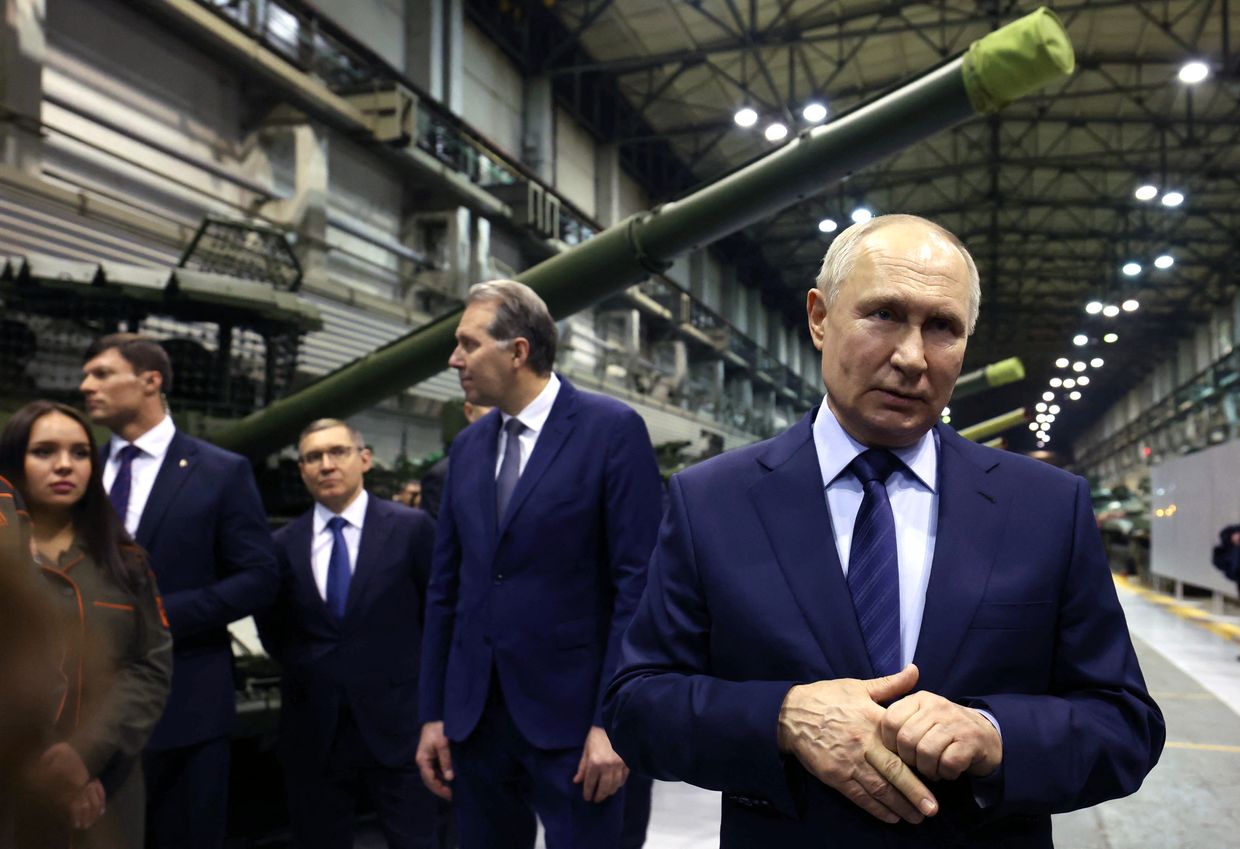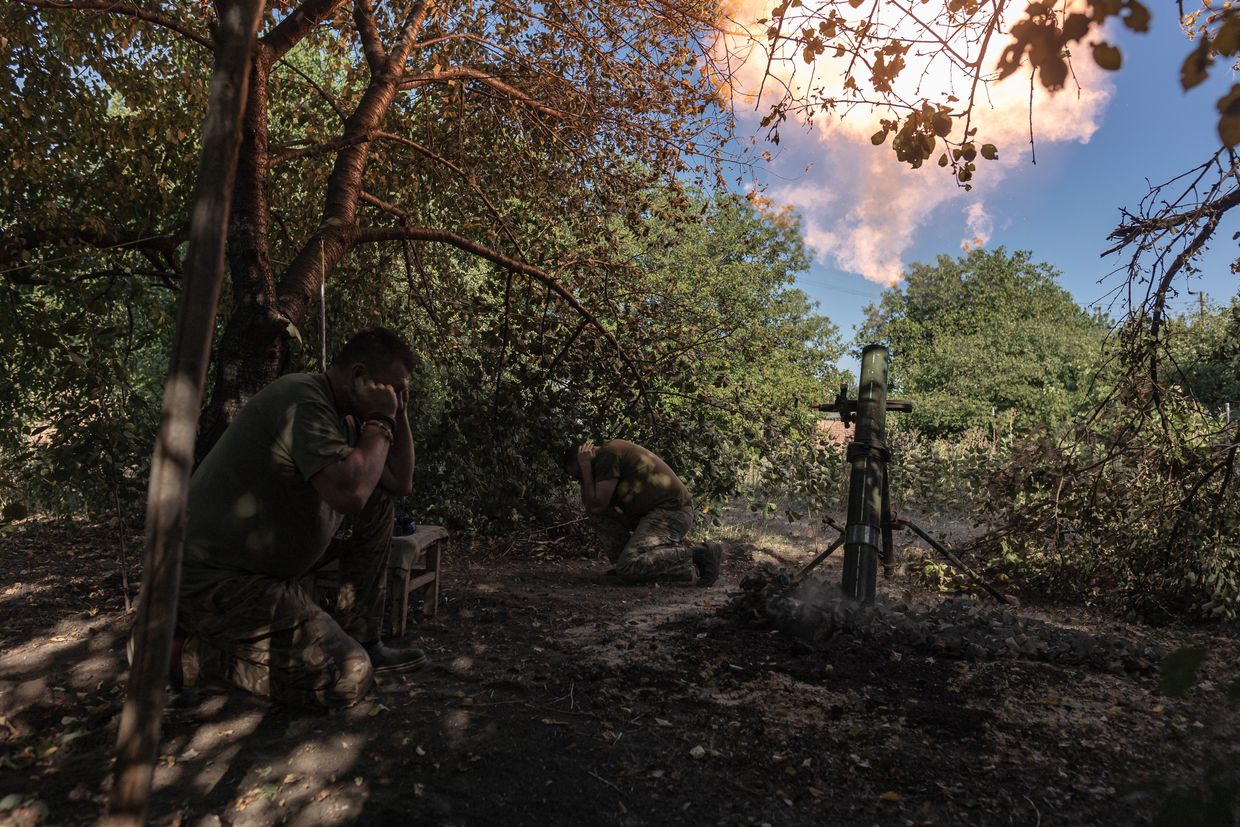Ukraine war latest: Russia's large-scale attack strikes a 'massive blow' at Ukraine's energy system

Key developments on Nov. 28:
- Russia's large-scale attack strikes a 'massive blow' at Ukraine's energy system
- 'Putin wants to escalate' before Trump takes office — Zelensky hits back at Oreshnik threats
- Ukraine destroys Russian $5 million radar system in Crimea, military intelligence claims
- Netherlands hands over 3 Patriot air defense launchers to Ukraine
- Russia 'unlikely' to launch nuclear attack despite Putin's threats, US intelligence says
- Russian troops operated torture chamber for Ukrainians in Belarus in 2022, media reports
Russia launched a large-scale missile and drone attack against Ukraine on the morning of Nov. 28, targeting energy infrastructure across the country, including the far-western regions.
Russian forces launched more than 180 drones and missiles at Ukraine, successfully hitting 12 sites of fuel and energy infrastructure, according to the Air Force. Energy Minister Herman Halushchenko said that Russia struck a "massive blow" at Ukraine's power grid. Emergency blackouts were introduced in multiple regions across Ukraine.
The Air Force announced a nationwide air raid alert after warning that seven Russian Tu-95 strategic bombers took off. Explosions were reported in multiple cities, including Kyiv, Kharkiv, Mykolaiv, Odesa, Lutsk, and Rivne.
Local officials also reported strikes in Sumy, Chernivtsi, Vinnytsia, Khmelnytskyi, Ivano-Frankivsk, Lviv, and Volyn oblasts.
Ukrainian forces shot down 79 out of the 91 missiles and 35 out of the 97 drones, launched by Russian forces, the Air Force reported. Over 60 more drones were countered by the means of electronic warfare.

Russia has already begun redoubling attacks on Ukraine's power grid as the country enters its third winter at war.
Andriy Yermak, the head of Ukraine's Presidential Office, said on Nov. 28 that Russia was deliberately stockpiling weapons, including arms from North Korea, in order to launch mass attacks on cities and infrastructure in winter.
"They stockpiled missiles for strikes on Ukrainian infrastructure, for warfare against civilians during the cold, during the winter," Yermak said.
'Putin wants to escalate' before Trump takes office — Zelensky hits back at Oreshnik threats
Russian President Vladimir Putin wants to escalate the war in Ukraine so that U.S. President Donald Trump fails to end the full-scale war, President Volodymyr Zelensky said on Nov. 28.
Zelensky's comments come in response to Putin's fresh threats to target "decision-making centers" in Kyiv and Ukrainian military facilities with Oreshnik, Russia's new intermediate-range ballistic missile (IRBM).
"(Putin) is aiming to disrupt the efforts of President Trump that are sure to come after his inauguration," Zelensky said in his evening address.
"Putin wants to escalate the situation now so that President Trump fails to end the war."
Speaking at the Collective Security Treaty Organization (CSTO) summit in Astana earlier in the day, Putin said that Russia's military leadership is now "choosing targets" in Ukraine to hit them with Oreshnik.
Zelensky called Putin's actions "pressure" to force Trump to accept Russia's terms.
On the campaign trail, Trump has criticized military support provided to Ukraine by Joe Biden's administration and pledged to get the U.S. "out" of the war. While the details of his plans remain elusive, some reports indicate this would entail forcing Ukraine to cede territory and at least temporarily give up on its NATO accession plans.
Russia first launched Oreshnik in an attack against the city of Dnipro on Nov. 21. Shortly thereafter, Putin claimed that "there are currently no ways of countering this weapon," which later was refuted by Zelensky.
Russia's Oreshnik attack followed Kyiv's first successful strike on a military target on Russian soil using U.S.-supplied ATACMS missiles. The Russian Defense Ministry admitted more such strikes against targets in Kursk and Bryansk oblasts had followed later.
Ukraine destroys Russian $5 million radar system in Crimea, military intelligence claims
Ukraine destroyed a Russian high-value radar station, 48Y6-K1 Podlet, near the village of Kotovske in occupied Crimea on Nov. 28, Ukraine's military intelligence agency (HUR) reported.
While no further details have been disclosed, HUR claimed to be behind the operation.
The Kyiv Independent couldn't verify the claim.
Podlet is a modern mobile radar system designed to detect air targets at low and extremely low altitudes.
The system has an estimated price tag of around $5 million.
The news comes after multiple explosions were reported across Crimea with Russian proxies claiming to have downed Ukrainian missiles and drones.
Stay warm with Ukrainian traditions this winter. Shop our seasonal merch collection.
Netherlands hands over 3 Patriot air defense launchers to Ukraine
The Netherlands delivered three new Patriot air defense launchers to Ukraine, Dutch Defense Minister Ruben Brekelmans announced on Nov. 28.
"This saves lives and protects vital infrastructure. It is and remains in our common interest to stop Russian aggression," Brekelmans said on social media.
Kyiv has been calling on its partners to provide additional air defense assets as Russia intensifies its strikes against cities ahead of winter.
Russia launched nearly 100 drones and 90 missiles against Ukraine overnight on Nov. 28, targeting energy infrastructure. Additional emergency blackouts were introduced across the country following the attack.
"I am grateful to Minister Brekelmans and the Dutch government for strengthening Ukrainian air defense capabilities," Ukraine's Defense Minister Rustem Umerov said.
Russia 'unlikely' to launch nuclear attack despite Putin's threats, US intelligence says
Washington's decision to allow Kyiv to use U.S.-made weapons to strike deep into Russia has not increased the risk of a nuclear attack, Reuters reported on Nov. 27, citing five unnamed sources familiar with the intelligence data.
The news comes as Russian President Vladimir Putin updated the nuclear doctrine on Nov. 19, and Russian government officials continue to criticize the recent White House decision, calling it a push for "escalation."
Despite the Kremlin's recent statements, the risk of a nuclear attack is unlikely, Reuters reported, citing its unidentified sources.
Intelligence assessments over the past seven months have shown that a nuclear escalation is unlikely to result from a decision to ease restrictions on Ukraine's use of U.S. weapons. "The assessments were consistent: The ATACMS weren't going to change Russia’s nuclear calculus," said one congressional aide briefed on the intelligence.
Meanwhile, Moscow is expected to expand its campaign of sabotage against European facilities to increase pressure on the West for its support of Kyiv, two high-ranking officials, a lawmaker, and two congressional aides told the news agency.
One of the five U.S. officials also noted that unveiling the new missile, referring to the Russian-made Oreshnik, is a step toward escalation.
U.S. officials said the intelligence helped guide the contentious debate within the Joe Biden administration over whether Washington should ease restrictions on Ukraine's use of U.S. weapons because of the risk of provoking Putin.
Russian troops operated torture chamber for Ukrainians in Belarus in 2022, media reports
Russian troops operated a torture chamber in Belarus in the spring of 2022, the Belarusian Investigative Center (BIC) reported on Nov. 28. Ukrainian prisoners of war and civilians abducted from Ukraine were reportedly held there.
The chamber was located on Belarusian government-owned property in the town of Naroulia, not far from the border with Ukraine, according to BIC.
The Russian military has reportedly set up a camp in Naroulia for people captured in Kyiv Oblast during the early stages of the full-scale war.
In comments to BIC, human rights activists described the Naroulia camp as a place where the treatment of civilian hostages “was among the most brutal.”
Lawyer Yulia Polekhina, working with the Sich human rights group, said that prisoners were tortured there.
Polekhina’s words echo those of former prisoners who went through Naroulia.
“They beat up civilians there really hard. One could hear constant screaming there,” said Bohdan Lysenko, a soldier with the Ukrainian Armed Forces who was captured by the Russian military and brought to the camp in March 2022, in a comment to BIC.
According to the investigation, the camp was located in the compound owned by Pripyatski Alyans on Kamsamolskaya Street. Owned by the Belarusian state, the company conducts catering and food procurement for regional institutions.
The company did not comment on the allegations and advised to contact local authorities for more information.
The Reckoning Project, the Ukrainian-American organization that records human rights violations, suggests that the actions of the Russian military in Naroulia may indicate a violation of the Geneva Convention provisions, which prohibit forced displacement of civilians and ban keeping military personnel and civilians at the same detention center.
The Russian military was reportedly present at the location at least until early May 2022.















